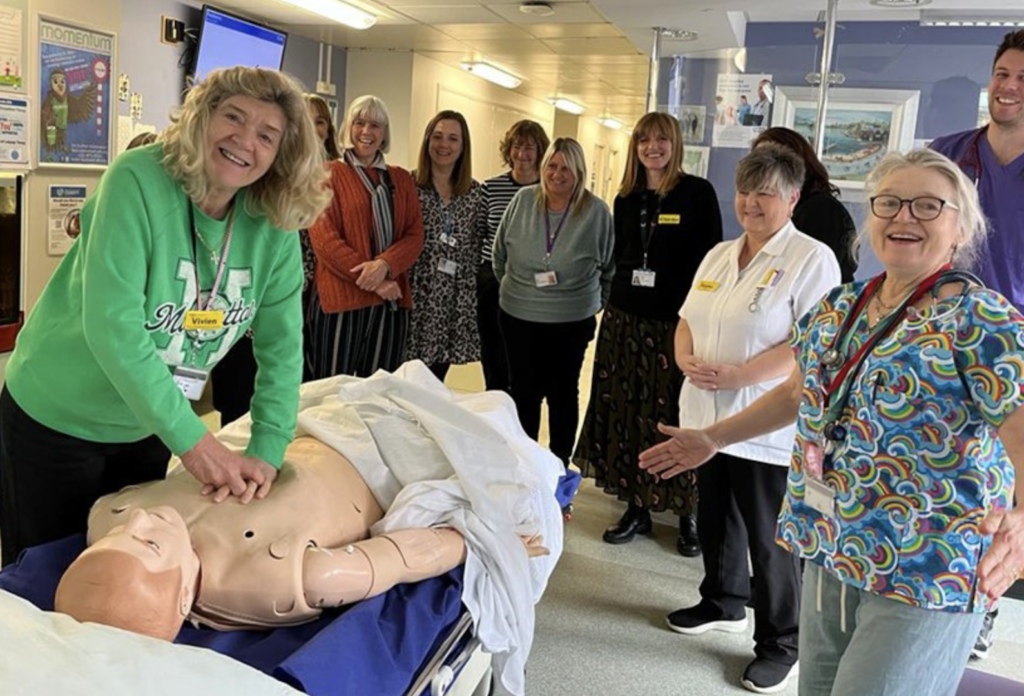By Dr Alison Groves
Last month over 90 schools and organisations took part in Restart a Heart Day. Kent, Sussex and Surrey Air Ambulance says an average of 22 people suffer cardiac arrest each day in the South East. CPR could make the difference to whether someone lives or dies, so spreading the word as widely as possible on how to give it is crucial.
My experience is with teenagers who have been resuscitated successfully because a bystander knew CPR. Six of my patients, with various causes for their cardiac arrest, have been sent home from hospital, absolutely fine (or neurologically intact as we say) because someone at the scene was trained in CPR – cardiopulmonary resuscitation. These heroes were not clinical staff. Just bystanders who knew what to do. The most recent success was a 16 year old boy who was drowning in the river Thames, and was rescued by a local life coach who is also a fireman and given successful CPR on the bank. Sunbury Matters reported on this last month.
The best time/age to train the whole population is senior school and since January 2019 CPR training has been on the national curriculum. However, like many things it has not been widely available as there are many time and resource pressures on schools.
In many countries in Europe, knowledge of CPR is essential for passing the driving test. In the absence of legislation, the next best alternative in this country is to teach the public, and particu-larly secondary school students, the skills.
The Paediatric Department in Ashford and St Peter’s Hospital was very much involved in Re-start a Heart day and encourages everyone to be trained in this useful life saving skills.
Dr Alison Groves, Paediatric Cardiology, ASPH
Dr Fiona MacCarthy Paediatric ED
Dr Xander Galbraith SPR SPH

